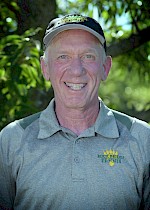Self-Awareness – An Internal Audit

Published
Introspection is a valued tool in the process of becoming aware of who you are and what you want to accomplish in your life. We yearn for coping skills when things get tough. However, coping skills, such as a centering breath, do not address the root cause of the problem; they only help manage the symptoms of the problem. One way to uncover the root cause of the problem is greater self-awareness.
The Self-Awareness Model
Below is a pyramid illustration of the elements of self-awareness for you (the athlete) or you (the person) to reflect upon. Evaluate yourself on each factor to discover any self-imposed roadblocks. Then, decide if you want to change your perspective toward your self-image. Consider changes that will lead you to be stronger mentally and emotionally as an athlete and person.

Base Level of the Pyramid
The base level of the self-awareness pyramid includes four “selves”, with the acronym “CLAD.” These four “selves” can guide you in your approach toward life. The word “clad” means to provide or encase with clothing or a protective covering, which can relate to a protective psychological covering. You can protect yourself psychologically while still holding yourself accountable. Here are the four selves that come from the CLAD acronym:
Do you have:
C- Self-Compassion
L- Self-Love
A - Self-Acceptance
D- Self-Discovery
Self-Compassion
Are you kind to yourself? How do you talk to yourself? How do you treat yourself?
A self-compassionate person supports themselves when they make mistakes or when they don’t get the win! They encourage themselves rather than criticize themselves. The self-compassionate person may get disappointed in a result, but they will still coach themselves in a positive, constructive manner.
Self-Love
Self-love involves deep caring, support, and appreciation for oneself. You can have a mindset that you will take care of yourself, you matter, and you love yourself unconditionally. It is not dependent on success. Self-love is the factor that most influences the other factors.
Self-Acceptance
Self-acceptance is defined as “the ability to accept yourself as you are, including your faults.” You must first seek self-understanding and then self-acceptance to better handle “emotional confusion.” (Cambridge Dictionary, 2023). With self-acceptance, you know the difference between what you can and cannot change. You choose to stay connected within yourself and emotionally move forward.
Self-Discovery
Once you set the groundwork for the CLA part of CLAD, with self-compassion, self-love, and self-acceptance, you can then explore self-discovery with enthusiasm and conviction. Self-discovery involves having the motivation for achievement in what you see value in pursuing. Good outcomes in self-discovery are more likely when you have a self-support system of self-compassion, self-love, and self-acceptance.
Second Level of the Pyramid
The second level of the pyramid includes the acronym “CDC.” The first acronym, CLAD, focuses on what you want (self-compassion, love, acceptance, discovery), whereas CDC focuses on how you are going to be.
In the medical world, CDC stands for the Center for Disease Control, and it is a governmental agency that protects the public’s health. You can strive to protect your psychological state of mind and your mental health by avoiding the “diseases” or pitfalls of lacking confidence, self-discipline, or self-control. Consequently, you can strive for:
Self-Confident
Self-Disciplined
Self-Control
Self-Confident
Confidence is a choice, though it’s not an easy choice. Proper preparation and training can help build confidence, but proper preparation and training alone will not necessarily lead to confidence. There are other factors that contribute to confidence, like self-image, psychological risk-taking, upbringing, and the “CLAD” factors. Use positive self-talk to move from doubt to belief. Think “Yes, I can,” and let someone else try to prove you wrong.
Self-Disciplined
There are many people with talent, but it’s the people who have disciplined talent who excel. Discipline is the cornerstone of achievement. It is the ability to persevere, stay focused, and consistently work towards goals despite obstacles or distractions (Chaturvedi, 2023). The ultimate sign of self-discipline is to make the right choice when nobody else is watching or when no one is making you do it.
Self-Control
Do you have good emotional management skills when you face resistance from others? In competitive athletics, you need to have emotional balance whereby you have the competitive fight but also the emotional control. Self-control means you have emotional control and emotional flexibility to adapt.
Third Level of the Pyramid
Selfish - Self-Interested - Selfless
You need to be honest with yourself about what type of person you are. Which characteristic do you exemplify in particular situations? Are you selfish, self-interested, or selfless? Differentiate among the three terms:
Selfish
It is really all about you. Your commitment to the group, team, or relationship is contingent on you getting your needs met first and foremost. Only then will you truly care about others or the team's direction. It’s a “me” approach.
Self-Interested
You care about yourself, and you will be an advocate for yourself in a respectful way. But if decisions are made that go against your wishes, you will support the team or relationship. You will abide by decisions (i.e., the coach), maintain positive relationships, and give it your best unconditionally. It’s a “we then me” approach.
Selfless
You unconditionally care about others (i.e., team members). Selflessness means you care about others and act with the desire to help others without regard for your feelings. It’s a form of unconditional giving. It’s a “them” approach.
How do others see you, and how do you see yourself? Are you “me” oriented (selfish) or “we” oriented (self-interested), or “them”-oriented (selfless)? The chase, journey together, and striving can bring satisfaction to those involved.
Top of the Pyramid Self-Actualization
Self-actualization is the final stage of Maslow’s Hierarchy of Needs. Self-actualization can be defined as realizing personal potential, self-fulfillment, seeking personal growth, and peak experiences (Mcleod, 2023). It intends to find your true potential through self-discovery in a curious and positive way. You can also discover self-compassion, self-love, and self-acceptance during the process. You can develop the ability to be self-confident, self-disciplined, and have self-control. You learn to differentiate between being selfish, self-interested, and selfless.
There is a contentment with self-actualization. Check in with yourself regularly to monitor the evolution of self-awareness. Enjoy the process of self-reflection and where it takes you.
References
- Cambridge Dictionary. Retrieved October 28, 2023, from https://dictionary.cambridge.org/dictionary/english/self-acceptance.
- Chaturvedi, V. (2023). Talent with Discipline: The Winning Formula for Success. Retrieved October 28, 2023, from https://www.linkedin.com/pulse/talent-discipline-winning-formula-success-varun- Chaturvedi/
- Mcleod, S. (2023). Abraham Maslow’s Hierarchy of Needs. Retrieved October 28, 2023, from https://www.simplypsychology.org/maslow.html
Share this article:
Published in:





